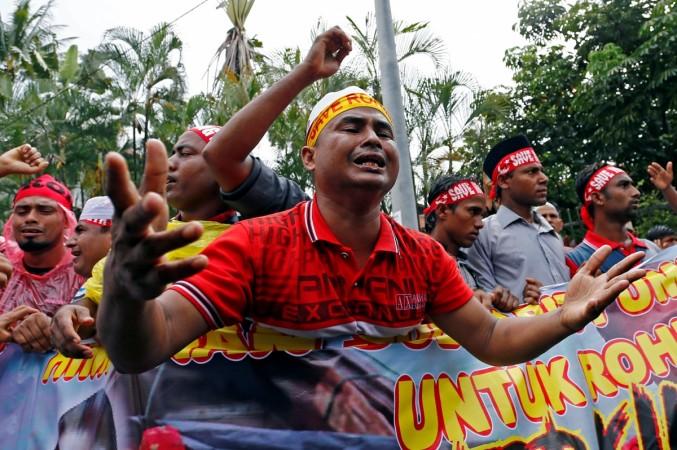As Myanmar is witnessing a massive violence between Rohingya militants and the military in Rakhine State since August 25, hundreds of refugees have been escaping to Bangladesh and Malaysia by boat. The ongoing clash between the two parties has led to at least 400 deaths and the exodus of about 1,60,000 people.
Malaysia has now said that the country's coast guards will not turn away the Rohingya Muslims fleeing violence in Myanmar and noted that it would provide a temporary shelter to them.
Malaysia expects to see numerous people seeking shelter in its territory in the next few weeks, said Zulkifli Abu Bakar, the director general of Malaysia Maritime Enforcement Agency said and the country is prepared for it.

"We are supposed to provide basic necessities for them to continue their journey and push them away. But at the end of the day, because of humanitarian reasons, we will not be able to do that," Zulkifli told Reuters.
The country, which already has an estimated population of 100,000 Rohingya Muslims, is likely to house the refugees at the immigration detention centres as it treats refugees as illegal migrants.
Meanwhile, numerous Rohingya women and children trying to escape to Bangladesh are said to have drowned. A Bangladeshi border guard told CNN that about eight bodies had been retrieved from the Naf River on September 6, and out of these many were children.

"It was a case of a boat capsizing," he said. "(But) this has been happening from day one ... Since then, around 60 to 65 bodies have arrived south (of the border area.) In other areas, maybe 10 to 15.
"No-one comes to collect these bodies. These people are so distressed, they are walking, coming across fields for five days, they hardly recognize their own relatives."
Such is the situation that some Rohingya Muslims are said to be paying fishermen $250 per person to ferry them to safety on boats that are anything but safe. "They are not designed to travel on this rough sea, they are taking long detour. It's not only the type of boat, it is the capacity, only made for five, six, or 10 people and they are taking double or triple that number sometimes," he added.

Amid the crisis, a United Nations senior representative has said that over 1,000 people – twice the official figures – may have already been killed in the Myanmar violence. "Perhaps about a thousand or more are already dead," Yanghee Lee, the UN special rapporteur on human rights in Myanmar, told AFP. "This might be from both sides but it would be heavily concentrated on the Rohingya population."
Myanmar doesn't recognise the 1.1 million Rohingya as its citizens and has often tagged them as illegal immigrants from Bangladesh. Tensions ensued after Rohingya insurgents attacked an army base and a few police posts on August 25.














